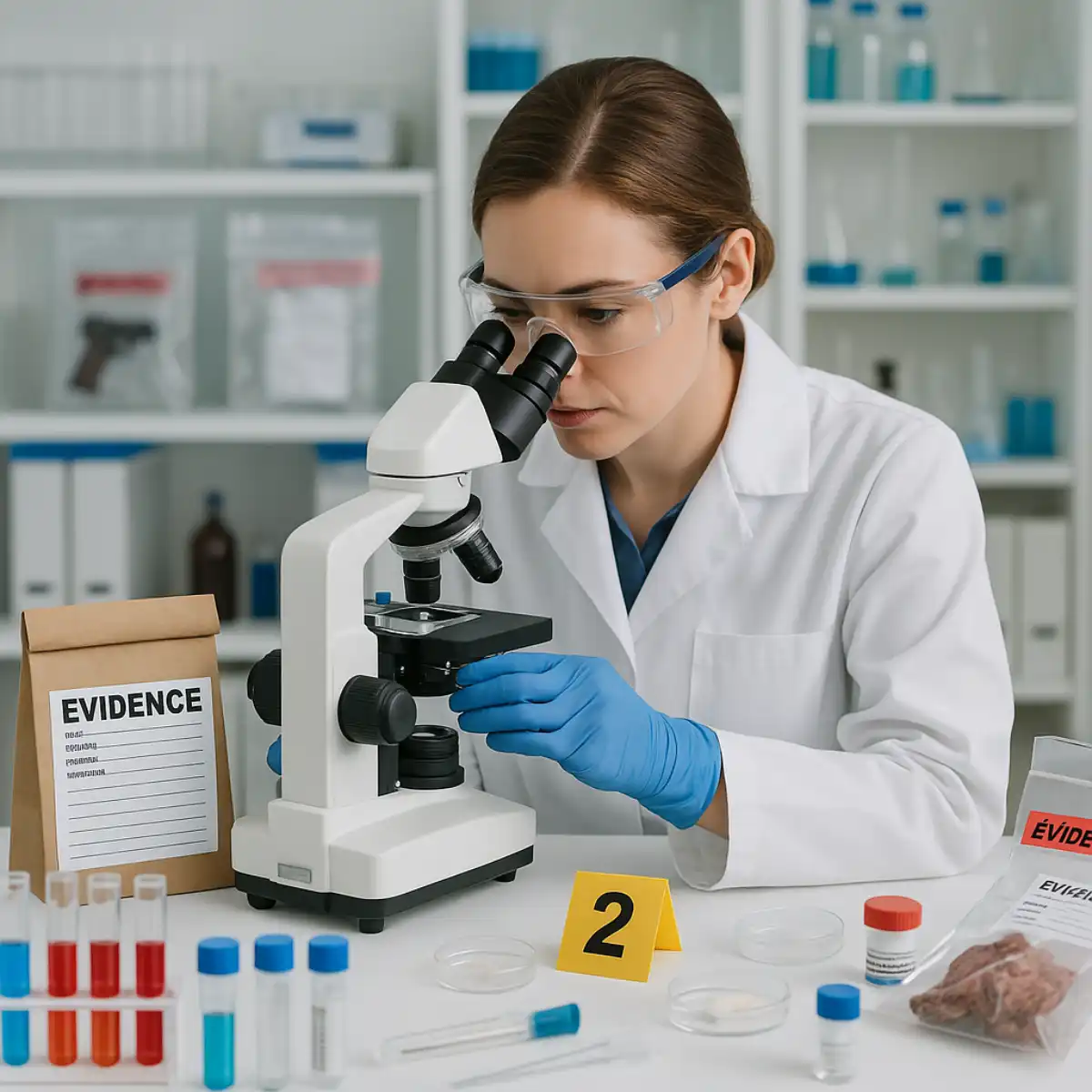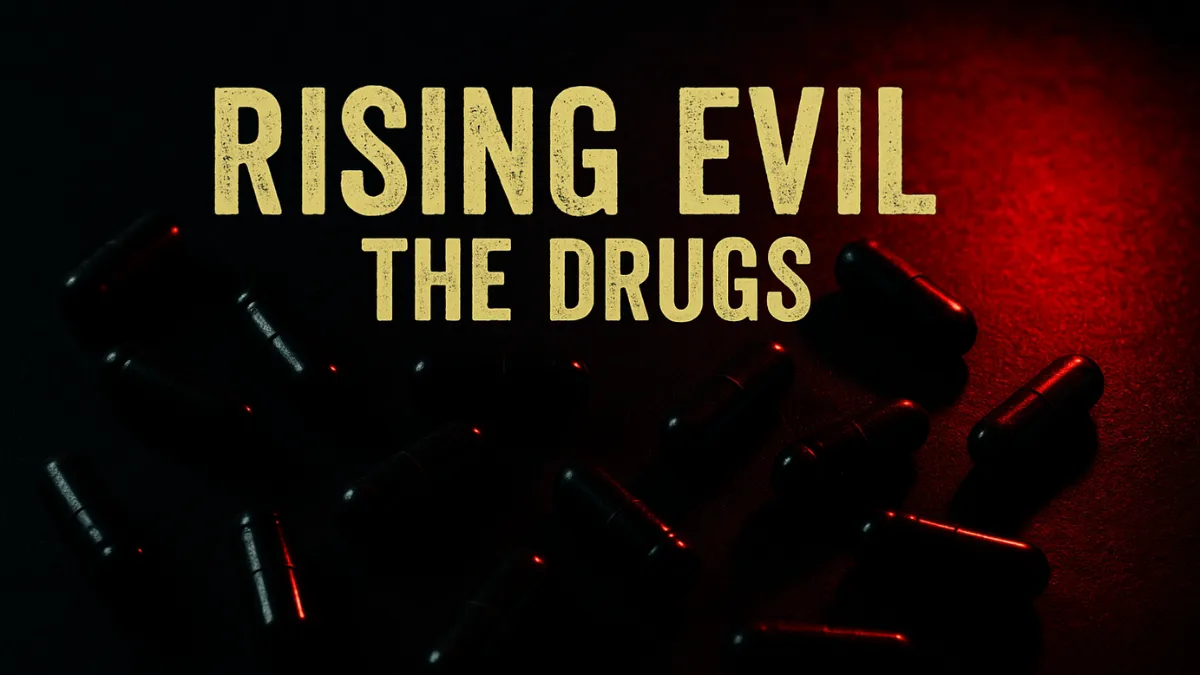Last Updated on August 23, 2025 by Nyayik Vigyan
What is a Forensic Science Technician?
A forensic science technician collects, processes, and analyzes physical evidence from crime scenes to support criminal investigations and court proceedings. They use scientific methods—such as microscopy, chemical testing, and digital forensics—to examine materials like blood, hair, fibers, and fingerprints. Protecting the chain of custody, writing detailed reports, and testifying as expert witnesses are core responsibilities.
Forensic Science Technician Salary in 2025
According to the U.S. Bureau of Labor Statistics, the median annual wage for forensic science technicians was $67,440 in May 2024, up from $60,590 in 2020.
Lowest 10%: $41,000
Highest 10%: $105,000
Private-sector labs and local agencies tend to offer lower starting salaries, while federal positions—such as the FBI—provide higher pay and benefits. In India, entry-level salaries range from ₹3–5 lakhs per year, rising to ₹10 lakhs+ with experience.
How to Become a Forensic Science Technician
Earn a Bachelor’s Degree (4 years)
– Major in forensic science, biology, chemistry, or a related field.Gain Practical Experience (1–2 years)
– Internships at crime labs, volunteering with law enforcement, or on-the-job training.Obtain Certifications (optional)
– American Board of Criminalistics certifications in bloodstain pattern analysis, forensic biology, or toxicology.Pass Proficiency Exams
– Lab technique assessments and professional licensure exams were required.Apply for Jobs
– Positions in federal agencies (FBI, DEA), state and local crime labs, or private forensic service firms.
Education Required to Be a Forensic Science Technician
Minimum: Bachelor’s degree in forensic science, biology, chemistry, microbiology, or biochemistry.
Alternative: Degrees in criminal justice or psychology with sufficient coursework in natural sciences.
Advanced Paths: Master’s programs in forensic science for specialisation in digital forensics, DNA analysis, or toxicology.
Forensic Science Technician Certification & Training
Specialised certifications enhance credibility and career prospects:
Certified Forensic Science Technician (CFST) by AAFS
Certified Crime Scene Investigator (CCSI) by IAI
Digital Evidence Specialist by GED
Continuing education workshops in advanced microscopy, chromatography, and emerging digital forensic tools keep skills current.
Forensic Science Technician Job Description
Core Duties:
Secure and document crime scenes, ensuring evidence integrity.
Collect and preserve physical evidence (blood, drugs, latent prints).
Analyze evidence using analytical chemistry, microscopy, and DNA profiling.
Prepare detailed laboratory reports and maintain equipment calibration schedules.
Testify as expert witnesses in court, explaining scientific findings to judges and juries.
Key Skills:
Laboratory techniques (microscopy, chromatography)
Strong written and oral communication skills
Critical thinking and attention to detail
Physical fitness and adherence to safety protocols
Forensic Science Technician Jobs & Career Outlook
Projected Growth (2023–2033): 14% (much faster than average for all occupations).
Annual Openings: ~2,500 new positions in the U.S.
Top Employers: FBI, state crime labs, local law enforcement, private forensic consultancies.
In India, opportunities exist in CBI, state forensic science laboratories, private investigation agencies, and academic research institutions.
Frequently Asked Questions (FAQs)
Q1: What does a forensic science technician do daily?
They document crime scenes, collect evidence, conduct laboratory analyses, write reports, and may testify in court.
Q2: How long does it take to become a forensic science technician?
Typically, 4 years for a bachelor’s degree plus 1–2 years of hands-on training or internships.
Q3: What is the difference between a forensic science technician and a forensic scientist?
Technicians perform evidence collection and laboratory testing under supervision; scientists typically hold advanced degrees and design new testing methods.
Q4: Are certifications required?
Most employers prefer, but do not require, board certifications such as those from AAFS or IAI; they boost credibility.
Q5: What skills are in demand?
DNA analysis, digital forensics, chromatography, microscopy, report writing, and courtroom testimony.
Also Read:
Forensic Science In Criminal Investigation
Forensic Science & Criminology
Gunshot Residue as Forensic Evidence















